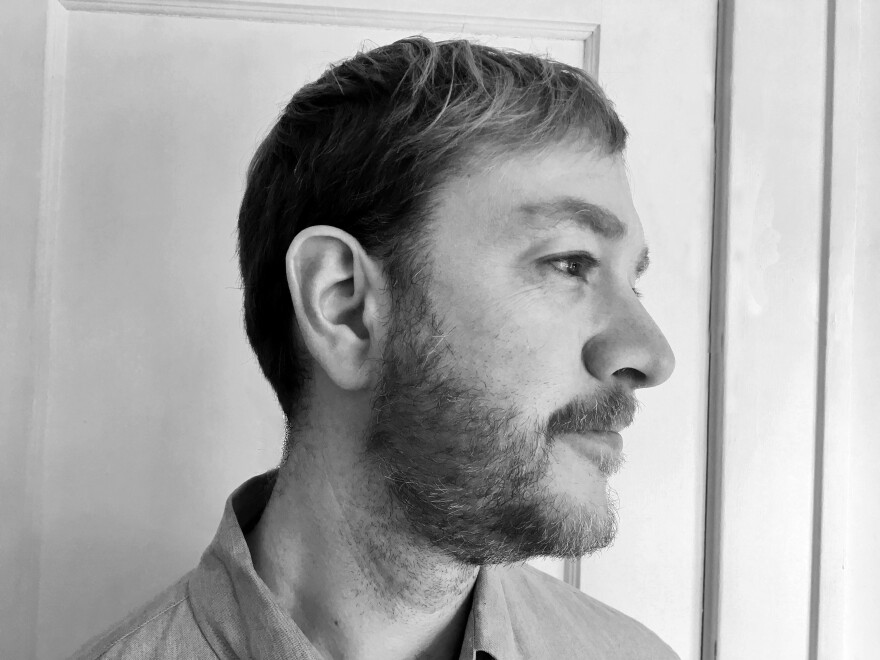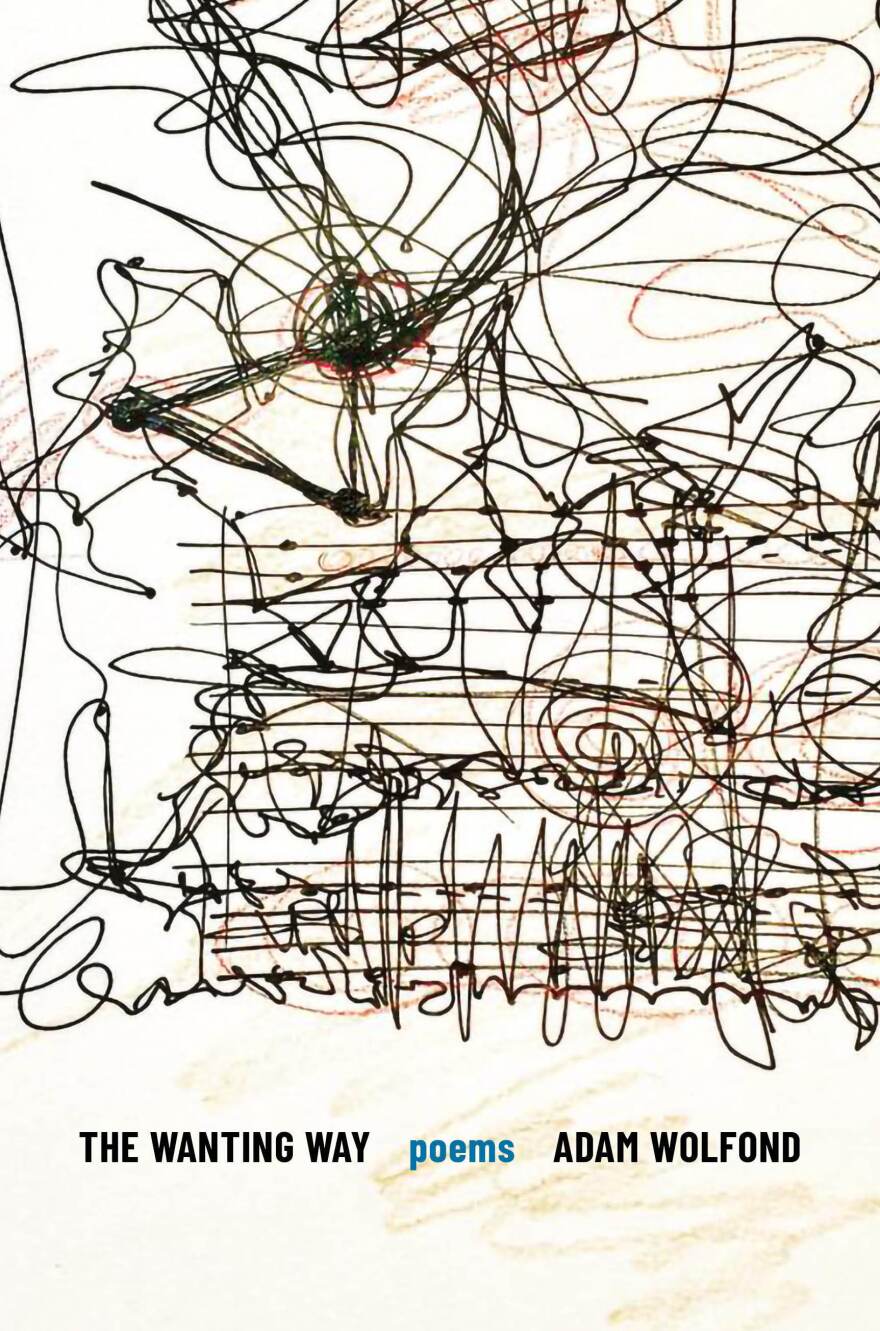Adam Wolfond says that poetry is part of his body. "It is nature to me," he says through a speech-generating device. "And I think that non-speakers like me dance with language."
Wolfond, 20, identifies as a non-speaking, autistic poet; he types and moves to communicate. He's neurodivergent, which means he has variations from what might be considered "typical" — in how his brain functions and processes information.
In the United States, April is both National Poetry Month and Autism Acceptance Month. This convergence is appreciated by many poets who also identify as neurodivergent, among them Wolfond and Hannah Emerson. When Wolfand says poetry is in his body — he's pointing to a diversity of language that exists beyond the common speaking world.
Neurodivergent poet Chris Martin met Wolfond and became his teacher a few years ago. Martin is the creator of Unrestricted Interest, a program that features neurodivergent writers, some of whom are paying students, and helps them with their craft. He's also the curator of a new literary series Multiverse that aims to publish books by neurodivergent authors, including Emerson's recent debut The Kissing of Kissing and Wolfond's The Wanting Way, out later this year. While Wolfond has been part of Unrestricted Interest, a number of poets in the upcoming Multiverse lineup, including JJJJJerome Ellis, are not connected to the program. The series has multiple editors and the poets have the final say on what gets published.

As an educator who has worked with neurodivergent students for years, Martin says he clearly sees how autism and poetry overlap. He learned the term "languaging" from Wolfond, which uses the collaboration between people, and between different mediums of communication, as its basis. Wolfond explains "languaging" as "an event in which the body and the atmosphere are related."
"For me, there's this huge gap between the way I language myself in poetry and the way I language myself in everyday life," Martin says, using "language" as a verb. He was in college when he became a poet and first met other writers with autism. "[What] felt so transformative to me about being in a community with non-speaking writers is that there just wasn't [this] gap in expression," he adds.
Wolfond's mother Estée Klar got her Ph.D. in Critical Disability Studies at York University in Toronto. She says educational restrictions and absolutes can hinder creativity. For neurodiverse poets who communicate through, say, movement, this can further perpetuate their exclusion from classrooms and communities. "When we have an educational system that says, 'No, this is the way you're supposed to write, this is how a sentence is, this is how an essay is supposed to be written' that can be really challenging," she says.
"I understood from early on that Adam wrote poetically," she says. "That way of writing is in and of itself Adam's form of writing. It's not something that's outside of him that he's calling upon to create an art form."
Wolfond collaborated with his mother on her Ph.D. dissertation, which examines the agency of language, how it emerges differently, and how its forms can be challenged. In their project S/Pace, Wolfond uses sticks to create poetry, turning them in his hands to link sound with movement.
In explaining his process of writing a poem, Wolfond says, "I am thinking about a line or a pattern and I then think about ideas talking at different paces." His poem "Tall Ideas," begins:
are the open way of thinking
that use the patterns of the way
I motion with language
The "patterns" of the "motion" of "language" represent a multidimensional means of expression that is fundamental for many non-speaking neurodivergent people.
"For at least 20 years, I'd read one poem aloud to my wife," says Ralph James Savarese, an English professor who has worked with the Duke Institute of Brain Sciences. He's referring to Dylan Thomas' "The force that through the green fuse drives the flower." One day, his son was in the background when Savarase was reading the poem, "And [he] goes to the computer and types, 'Very great sound. Very great sound.'"
Savarese became interested in the neuroscience of literature after adopting a 6-year-old, non-speaking boy who had autism.
In his academic work since, Savarese has claimed that neurodivergent people are exceptionally sensitive to figurative language. "Literature is a concrete language that produces mental imagery, generally speaking, in the mind of the reader," he says. "And the amount of activity in the sensory cortices in the brains of autistic people suggests... this might actually be quite a hospitable form of language."

Indeed, Chris Martin says he's found reciprocity between poetry and autism.
"One of the interesting things about [Adam Wolfond's] book is that instead of thinking of them as line breaks, Adam thinks of [line breaks] as windings — like a river or a piece of yarn or string," he says. "So when it came time to edit his book... he wanted to do some really interesting – windings and rewinding."
The editors gathered Wolfond's poems to figure out different ways in which he might "wind" them. In one project, the poems were read aloud while Wolfond was walking and had paint on his feet, so he would carry out particular movements to indicate a wind.
"And so we ended up with variations on almost every poem in the book," Martin says. "And then he went and picked which ones he liked best."
For Wolfond, poetry is a way of being. As he says, "languaging can open many ways for persons who are not able to walk the talk."
Copyright 2022 NPR. To see more, visit https://www.npr.org.



